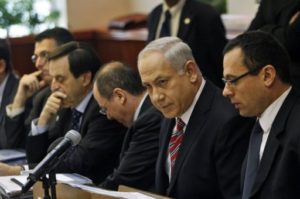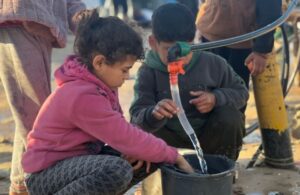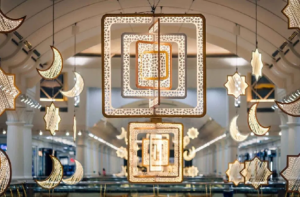By: Kurnia M Hudzaifah Journalist of MINA
Ramadan is the most appropriate time to educate people in increasing worship and righteous deeds. Therefore, Ramadan is often called the month of tarbiyah (the month of educators), educating people to restrain harmful emotions and human desires.
In addition, during the month of Ramadan people are educated to withhold eating and drinking, a believer must restrain his lust during the day. Therefore, Ramadan is the month of tarbiyah, educating our faith in performing masiyat to Allah. Educating our hearts to close to Allah Subhanahu Wa Ta’ala.
By getting used to doing good, doing good deeds because as a Muslim who wants his heaven, he must try really hard, by doing good deeds, namely by getting used to doing good.
Also Read: Ustaz Abdul Somad in Pekanbaru: It’s Time to Embrace Hijrah
Allah says in Surah Al-Baqarah verse 214.
أَمْ حَسِبْتُمْ أَن تَدْخُلُوا الْجَنَّةَ وَلَمَّا يَعْلَمِ اللَّـهُ الَّذِينَ جَاهَدُوا مِنكُمَّ َ
“Do you think you will go to heaven when Allah does not know who is serious among you and who is patient?”
At night, it is usual to rest. So in the month of Ramadan we are required to increase the number of qiyamulail prayers and Al-Quran recitations in mosques. This is education so that we are accustomed to doing good. So that kindness can be continued after the month of Ramadan.
Also Read: Friday Sermon: Jews, Children of Israel, and People of the Book
According to Shaykh Muhammad bin Salih al-Uthaimin, a person will die above his habit. So with this holy month of Ramadan, will these practices become our habits after fasting? Or does it just stop at the month of Ramadan? Of course, what Allah wants from observing the month of Ramadan is that we can do these practices after Ramadan.
During Ramadan we decorate the days by reading the Quran. So even after Ramadan, we decorate reading al-quranul karim, reciting the verses and chanting them. At the time of Ramadan, we are accustomed to night prayers, likewise after Ramadan we also have to get used to night prayers, because it is a habit of righteous people before us, as Rasulullah Sallallahu ‘Alaihi Wa Sallam said:
عَلَيْكُمْ بِقِيَامِ اللَّيْلِ فَإِنَّهُ دَأَبُ الصَّالِحِينَ قَبْلَكُمْ
“You should pray at night, because that is the habit of the righteous people among you.” (HR. Tirmidhi)
Also Read: Friday Sermon: Hijrah in the Struggle for the Liberation of Al-Aqsa and Palestine
There are several reasons why Ramadan is called the month of tarbiyah.
First, the implementation of prayer is longer than other worship practices, such as prayer, zakat, and pilgrimage. Prayers can be completed in a fairly short time, as well as zakat.
Ramadan tarbiyah a believer for a whole month, a time span that is quite long and long.
Second, many categories of worship are presented in this glorious month, with a position to support the formation of the ‘aabid (servant of Allah) person. There is fasting, tarawih prayer, reciting Al-Quran, iktikaf, there is also alms and zakat and there is umrah which is the main thing.
Also Read: Sadaqah, A Simple Act with Extraordinary Virtues: Dr. Wahyudi KS
Rasulullah Sallallahu ‘Alaihi Wa Sallam is a role model of how Ramadan is a very special tarbiyah month in all acts of worship and other goodness. In the last ten days of Ramadan, as if he was running fast, the noble Apostle intensified all his acts of worship.
Third, the multiplied reward is proof of the presence of Ramadan by tarbiyah a servant to maintain the motivation of all his good deeds.
The practice of the Sunnah is rewarded with mandatory rewards, the charity must be multiplied by an endless multiple. In fact, the reward of fasting is so special because Allah determines its value.
“Fasting is for me. And, I’m the only one who reciprocated. ” (HR Ahmad)
Also Read: The Dynamics of Living in a Muslim Community in the Modern Era
No wonder if all those who yearn for Allah’s pleasure, mercy, and heaven wish that all months are Ramadan. because, there is so much more to the beauty of His love and compassion in this glorious month.
A Muslim scholar in the sciences of the Koran, Quraish Shihab, says that fasting is a curtain created by Allah against the tongue, hearing, sight, stomach and genitals in order to prevent people from falling into hell and taking them to heaven.
The holy month of Ramadan can be an opportunity to forge children with Islamic education. Not only school, but also while at home.
Meanwhile, Shaykh Yusuf al-Qardhawi in his book Fiqh al-Shiyam (translated as Imitate the Prophet’s fast: Divine Prescriptions for Spiritual Health) gave advice. The cleric, who is now 92 years old, emphasized that a child is not obliged to fast in Ramadan.
Also Read: The Meaning of “Minal Aidin wal Faizin”
However, parents need to educate their children to carry out God’s obligations. At least, the habituation of worship is obligatory.
Let us fill the remaining nine-day month of Ramadan with deeds in the pleasure of Allah as a servant adorns this blessed month in obedience to Allah. Allah knows best. (AT/RE1)
Mi’raj News Agency (MINA)












![Israeli tanks and APC’s gather by the Israeli – Lebanese border. Amid Israel’s escalating campaign against Hezbollah in Lebanon on September 30, 2024. [Erik Marmor/Getty Images]](https://en.minanews.net/wp-content/uploads/2024/10/IMG_20241001_203226-300x197.jpg)
























 Mina Indonesia
Mina Indonesia Mina Arabic
Mina Arabic